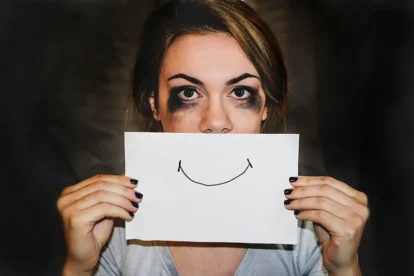Through the Storm: The Need for Co-Occurring Treatment of Addiction and Borderline Personality Disorder

Drugs and alcohol can be destructive for anyone. Put them in the hands of a person who already struggles with impulse control, mood disturbances, self-harm, and suicidal ideation, and you have a recipe for disaster. This is the reality for many people living with addiction and co-occurring Borderline Personality Disorder (BPD).
Looking for Relief
The pain of BPD is profound. The powerful fear of abandonment, troubled interpersonal relationships, unstable sense of self, chronic emptiness, and mood volatility that characterize the disorder can feel overwhelming and debilitating. Often, the bodies of those with BPD offer stark physical evidence of severe emotional suffering in the form of self-inflicted cuts or burns, somatic manifestations of psychological struggle. While loved ones of people with BPD often describe a feeling of “walking on eggshells,” those who suffer from the disorder also know the fear of never knowing when the next trigger will come and when you’ll be thrown into emotional distress. The desire for relief leads many to turn to substance use in order to escape and experience a temporary reprieve from internal chaos. If you have sought comfort in drugs or alcohol, you are not alone; it is estimated that approximately 66% of people with BPD will also experience substance abuse or addiction in their lifetime. A German study suggests that the number may even be as high as 78%.
We're Here to Help. Call Today!
866-922-1350A Perfect Storm
The characteristics of BPD not only set the stage for substance use, but also create a perfect storm for addiction to take root. With impaired emotional and behavioral regulation, moderation may not be your strong suit, and you are more likely to act on impulse without thought to long-term consequences. While you may very much want to feel better, that desire is often paired with the paradoxical drive toward self-destruction; drugs and alcohol have the ability to meet both desires simultaneously and, without regard for your well-being, you are less likely to limit your use or recognize when you’ve had enough. In fact, you may want to harm yourself. With an often tenuous grasp on social supports, you may lack the community of family and friends that acts as a protective barrier against addiction for many, and your sensitivity to criticism can make you react to the concern of loved ones with defensiveness and anger, driving you further into addiction.
While BPD dramatically increases your propensity for addiction, your substance use simultaneously aggravates your BPD symptoms, further diminishing your impulse control, increasing feelings of anger, anxiety, and depression, and damaging your ability to cope with stressors. It can also create a new source of friction within your social relationships, which are already vulnerable to instability, threatening your fragile bonds with others. Even more alarmingly, people who experience both BPD and addiction are significantly more likely to engage in self-harm and suicidal behaviors than people who suffer from BPD or addiction alone. While the momentary relief of substance use may seem sweet, ultimately addiction offers only deeper pain and takes you further from the self-acceptance, love, and compassion you need to heal.
The Need for Co-Occurring Treatment
When you have an addiction with co-occurring BPD, it is crucial to treat both conditions simultaneously in order to optimize your chances of remission. According to Dr. Robert O. Friedel, a psychiatrist specializing in BPD treatment:
Substance use disorders are one of the strongest predictors of poor short and long-term outcome of borderline disorder. There is little or no hope of gaining control over the symptoms of borderline disorder while alcohol and other drugs are being used, no matter how appropriate the treatment program is otherwise.
While BPD has a reputation for being notoriously difficult to treat, modern therapies can offer relief and healing through sophisticated psychological and behavioral interventions. Specialized dual diagnosis care strikes a balance between the validation-centered approaches shown to be most successful with BPD patients and the need to change addictive behavior. In fact, the gold standard for BPD, Dialectical Behavior Therapy (DBT), shares much in common with the philosophy behind 12-step addiction recovery practices; Dr. Marsha Linehan designed DBT around the principle of “acceptance of life as it is, not as it is supposed to be; and the need to change, despite that reality and because of it.” In a powerful personal essay, Amy Dresner described her experience with DBT in her own addiction and BPD treatment:
What immediately struck me the most about this type of therapy is how similar it was to AA. One of the central beliefs of DBT is “radical acceptance,” whether it was the situation you were in or a strong painful feeling. Acceptance, they teach, does not mean that you like what is happening or how you are feeling—just that you are willing to stop fighting it. Pain plus non-acceptance, they said, equals suffering, while acceptance decreases suffering. Also, the thinking went, in accepting the negative emotion, you can stop trying to run from it through self-harm, drug abuse, acting out sexually, or whatever else you might have done in the past. Sounds a little like the Serenity Prayer, right?
By combining BPD and addiction treatments, the two can build on each other, each reinforcing and fortifying your healing process while teaching you to accept that which you cannot change and giving you the ability to change that which you can. Through effective care delivered with expertise, empathy, and warmth, you can find the real, sustainable relief you have been searching for and develop the plan, support, and skills necessary to ensure continued health after residential care. As Dresner writes, “[J]ust like with alcoholism, there is no cure for BPD—only active treatment. And when you stop using the tools that treat your BPD, you lapse back into old behavior—just like with alcoholism.”
Alta Mira offers addiction treatment for people with co-occurring mental health disorders in a welcoming, non-judgemental therapeutic community. Contact us to learn more about our program and how we can help you or your loved one on the journey to wellness.






